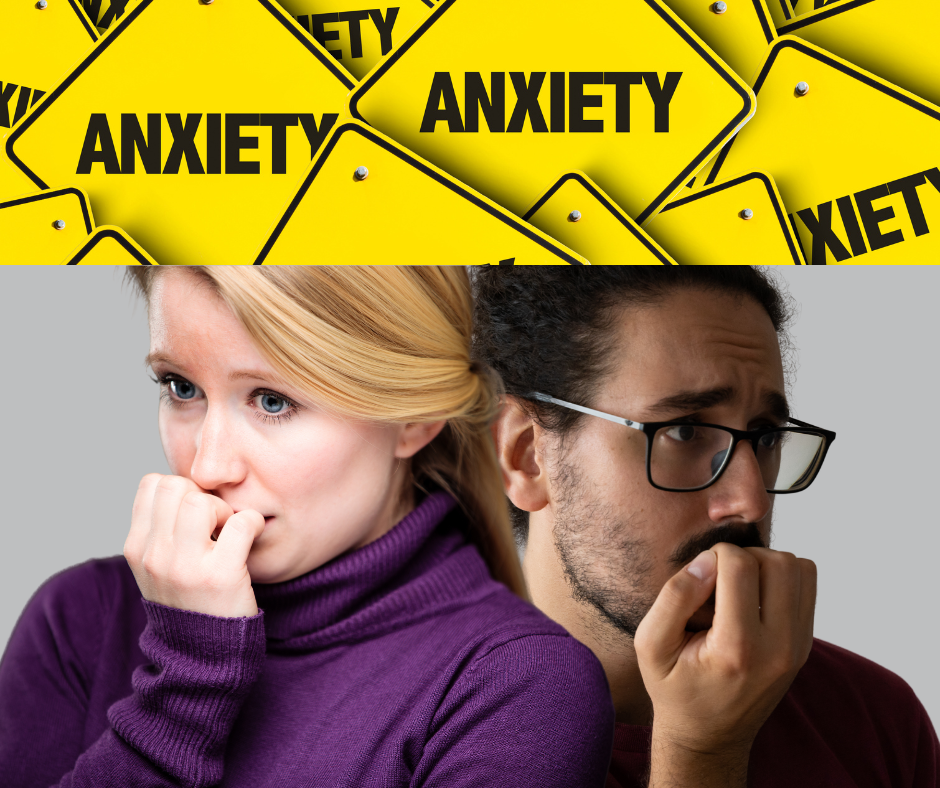A Holistic Approach to Well-Being
In today's fast-paced world, stress often gives rise to anxiety. While anxiety is a natural response, it can sometimes become overwhelming, leading to what is called anxiety disorders. These disorders come in various forms, from general anxiety to social fears.
Factors Contributing to Anxiety Disorders
Anxiety disorders are the result of complex interactions within our bodies. These interactions involve the brain, our stress response system, and even the gut microbiome. By understanding these factors, we can uncover solutions beyond the usual approaches.
Multiple factors contribute to anxiety disorders. Genetics, personal history of mental health issues, and past traumatic events play a role. Interestingly, women are more likely than men to experience anxiety disorders. Age also plays a part, as anxiety can change as we grow older. It's worth noting that anxiety is linked to other health problems, such as depression, cardiovascular issues, and diabetes. This highlights the importance of tackling anxiety from all angles.
Anxiety disorders show up in various ways—trouble focusing, irritability, muscle tension, sleep problems, and persistent worries. These symptoms can be distressing and even lead to panic attacks, compulsive behaviors, or a fear of social situations.
Innovative Approaches to Anxiety Treatment
Besides the usual treatments like therapy and medications, new approaches are emerging that could provide relief for anxiety.
Researchers are now looking into exciting treatments for anxiety. Ketamine, known as an anesthetic, has shown potential for anxiety management. Other options include oxytocin, and innovative neurostimulation techniques. These new methods offer hope for those seeking alternatives.
While medical treatments are important, our lifestyle and diet choices play a significant role in managing anxiety. Getting enough sleep, regular exercise, and practicing mindfulness can all contribute to anxiety reduction. Simple practices like meditation and mindfulness-based therapy can help us cope better with stress.
Lifestyle and Diet's Impact on Anxiety
Our diet has a big impact on our mental state. The Mediterranean diet, full of wholesome foods and healthy fats, can lower the risk of mood disorders. Adding B-vitamins, magnesium, and omega-3 fatty acids to our diet can address nutrient deficiencies that contribute to anxiety. L-theanine, found in tea, is another natural remedy that can alleviate stress-related symptoms.
Harnessing Nature's Remedies
Nature provides remedies that have stood the test of time. Adaptogens can help regulate stress hormones, while saffron has been shown to improve mental health. Probiotics, with their potential to ease anxiety and stress, offer another avenue for holistic well-being.
Managing anxiety involves a holistic approach. Combining emerging treatments, lifestyle changes, and natural interventions can help us regain control of our mental well-being. While medical guidance remains crucial, these holistic practices complement conventional methods and lay the foundation for lasting relief.
A Collective Journey Towards Well Being
In a world filled with constant stress, it's essential to recognize that the path towards improved mental health is something we all navigate together. By delving into the intricacies of our physiological processes and adopting a comprehensive perspective, we can anticipate a future where anxiety's hold weakens, enabling us to experience a newfound sense of freedom and vitality.
Vitasecrets’ Serenus Can Help You Achieve Well Being
Vitasecrets’ Serenus is a nutritional supplement that is designed to bring you focused calm to your hectic life. Serenus helps you to maintain your mental resilience allowing you to perform at your best level. Don’t let the outside world knock you off your own equilibrium. Experience balance through calmness. Serenus is here to help.




